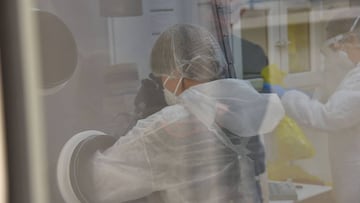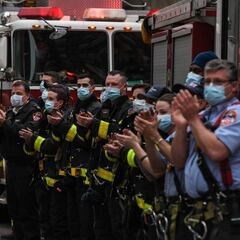Coronavirus: US study suggests Covid-19 mortality rate is lower than thought
Researchers at Stanford said it is possible the total number of Covid-19 cases may be much higher and therefore the mortality rate could be less than 0.2%.

Scientists at Stanford University in the US have carried out a study that suggests Covid-19 may have a lower mortality rate than originally thought. According to the California-based institution, the novel coronavirus could have a mortality rate of between 0.12% and 0.2% overall, compared to the current statistics in the US, which according to the study stand at 5.54%.
The Stanford research indicates that the number of people infected with Covid-19 worldwide could be considerably higher than official figures suggest, which will lead to a much reduced total number of deaths attributed to the ongoing pandemic. The study was conducted on people who reported no symptoms of the coronavirus but who were found after a process of identifying antibodies via fingerprick blood tests to have already contracted the virus and recovered.
The investigation was carried out on 3,300 people in Santa Clara and the results indicated that the number of people who had contracted coronavirus was 50 to 85 times higher than originally calculated.
You canfollow the latest developments on the Covid-19 crisis with our daily live blog.
Coronavirus research ongoing in the US
Related stories
The study was conducted on 3 and 4 April, when Santa Clara had registered 1,094 cases of the novel coronavirus and 50 people in the county had died after contracting the disease. The Stanford study concluded, however, that between 48,000 and 81,000 people in Santa Clara could have been infected at the time.
The researchers have warned that caution is required and that further investigations need to be carried out before any firm conclusions can be drawn, noting that the study group was not necessarily representative of the US as a whole or of the wider world. The US National Institutes of Health and The University of California, Berkeley, are working on a similar study that may help to shed more light on the true scale of the coronavirus pandemic worldwide.


